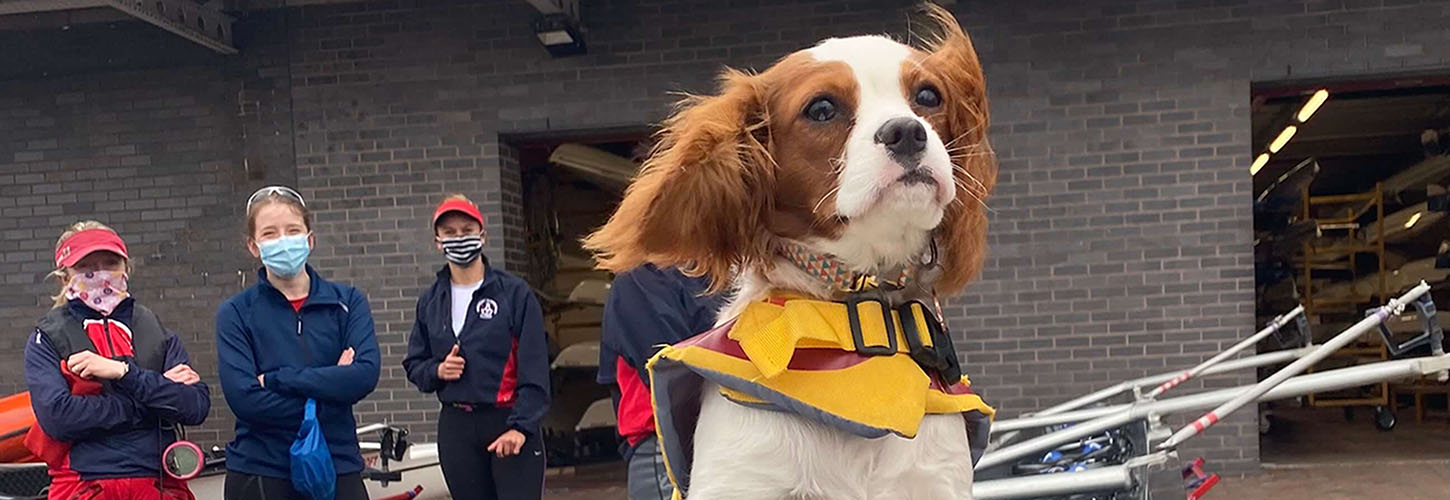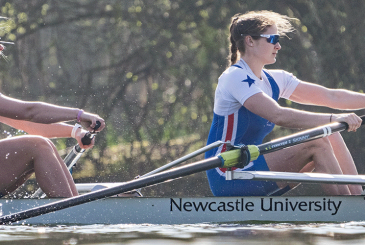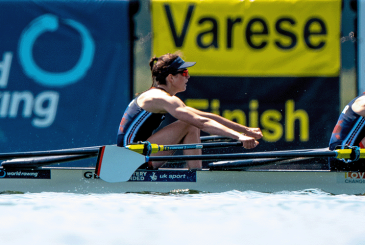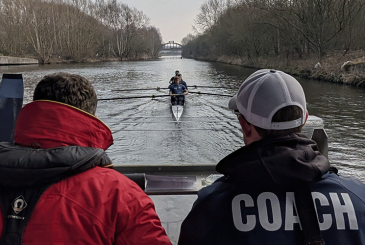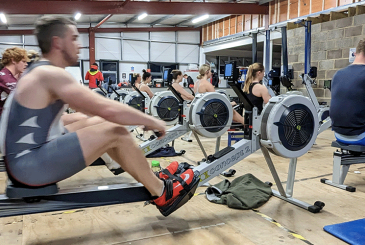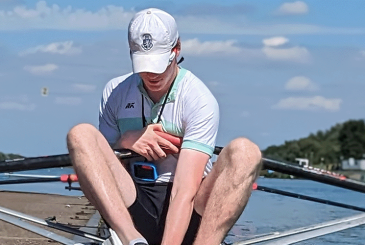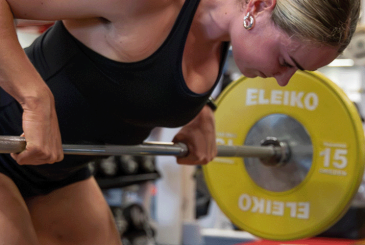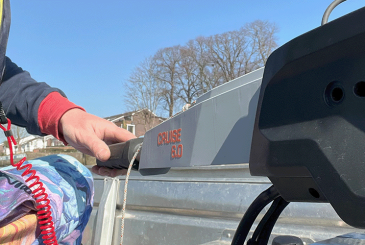The same focus on fun and community that got the Agecroft RC junior squad through Lockdown, and won their coaches a British Rowing award, continues now as the programme grows. Martin Gough spoke to the two coaches responsible
The Covid-19 pandemic made many people think about what they value most. Friendship and fun must have come out high on the list for many.
Wayne Curry and Lauren Barclay, the junior coaches at Agecroft RC, helped provide just that during Lockdown, winning the Coaching Team category at the British Rowing awards in January 2022 after being nominated by members of their squad.
And that same ethos continues at the Salford-based club now, as the junior programme continues to grow.
In their award nomination, one junior member described the Lockdown period as “a trial of dedication and resilience in the backdrop of a continuously changing ‘new-normal’ and constant uncertainty”.
“Despite these challenges,” they added, “the Junior coaching team at Agecroft remained unwavering in their approach to maintaining and improving the programme of rowing that our squad so enjoys.”
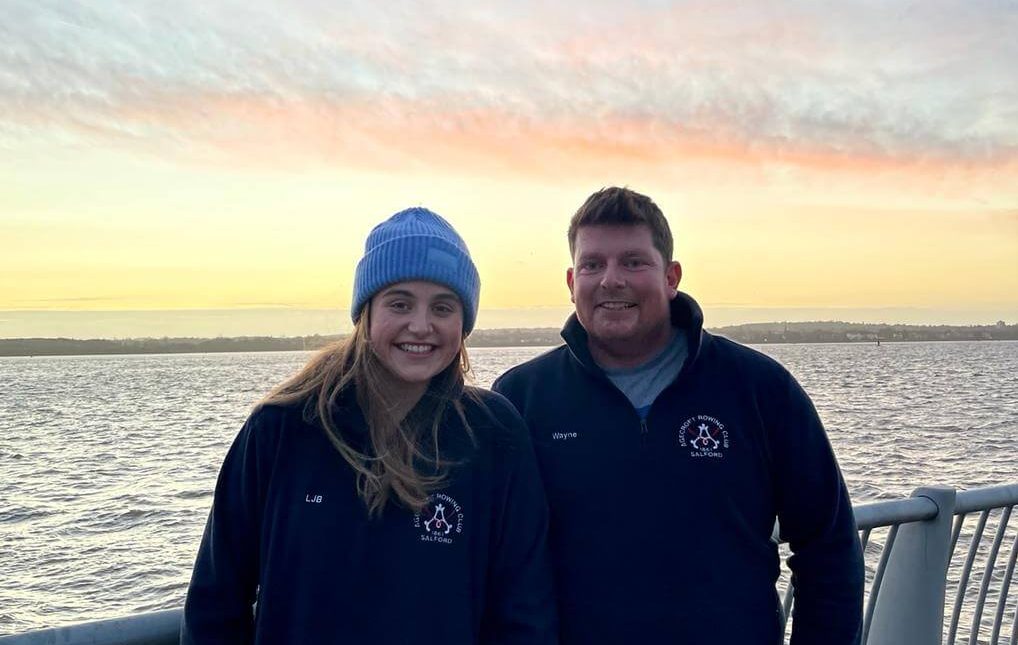
Wayne’s day job is in sports coaching but he spends his weekends volunteering at Agecroft, while Lauren – a former Agecroft junior herself – combines studying for a Masters in Journalism with some paid coaching elsewhere, plus her own training, and runs squad sessions during the week. They are assisted by canine coach Millie.
“As with a lot of the sports clubs out there, it’s a community group – they need the social element of it,” says Wayne.
“The kids lost that during the pandemic and we lost it as well. We had to keep it going and use the technology available. It was really good fun.”
So alongside the Zoom training sessions – where athletes used whatever equipment they had available or just took the rest of the squad for a run on Zoom – there were Zoom quizzes and even a few Zoom parties including a fancy dress one for Halloween.
Lauren, who ran Zoom circuits from her garage, adds: “We did a weekly quiz and the kids all took turns writing it. It got very competitive – we had siblings in separate rooms trying to beat each
other.”
In the time they have been back on the water, there have been some successes at local and even national level: 12-year-old Bella won silver in J14 singles at the Junior Inter-Regional Regatta in May, having rowed for less than a year.
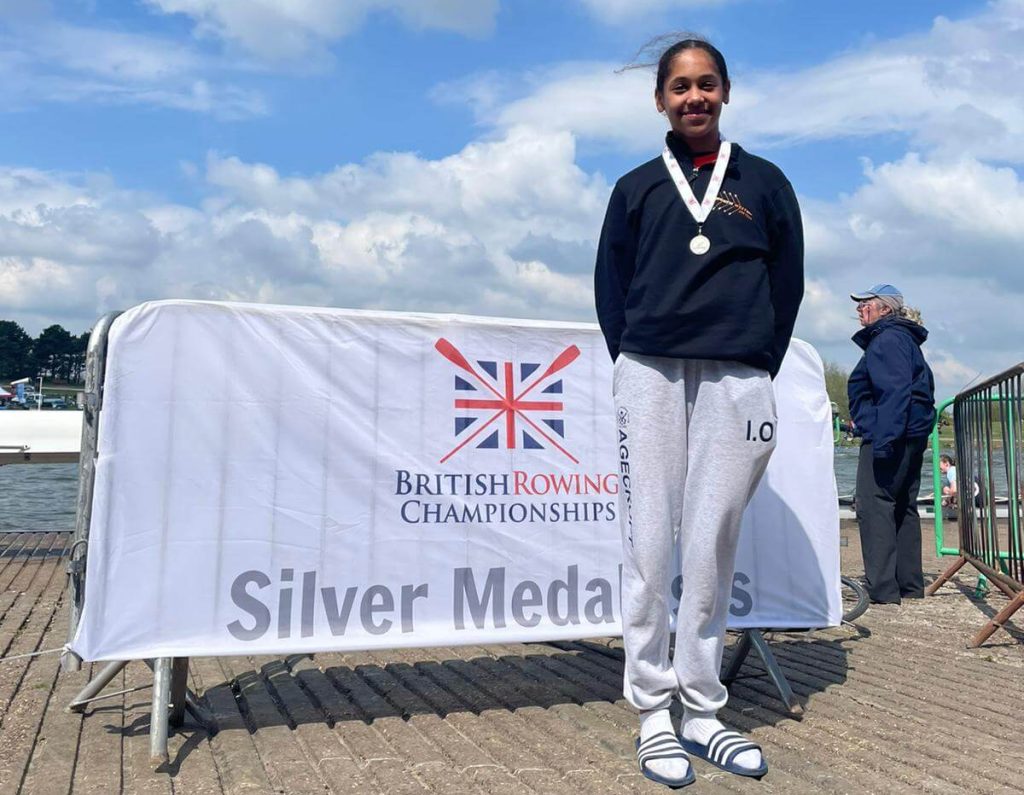
The focus, though, has remained firmly on teaching the sport to as many young people as possible, helping them gain skills that will last a lifetime. The squad currently numbers almost 60, aged from 10 to 18.
“A club is a safe place – it shouldn’t be about how many sessions they do or what their scores are on the rowing machine”
“We’re not elitist – we’re open to all,” Wayne explains. “There are some kids who might only come down once every three months and you just treat them as if you saw them yesterday.
“A club is a safe place for them – it’s got to have that feel to it. It shouldn’t be about how many sessions they do a week, or what their scores are on the rowing machine. We just want to create a safe space for them.”
Wayne, who learned to row at Chester-le-Street RC at the age of “nine or 10”, works as head of training for Bikeright, a company that delivers bike training in primary schools and is based a few minutes’ walk from the Agecroft boathouse on Salford Quays.
“My office overlooks the river and I was watching people going up and down. I started just sitting in a launch for them, then they asked me to look after the junior squad,” he says.
“A lot of sports coaching is very similar; it’s about the language that you use, keeping it positive, trying to elicit information from your trainees and get them to reflect a lot more.
“It’s just continuing to grow all the time. We break the weekends down into an intermediate session, a development session and learn to row, which is open all the time.
“The kids who are in learn-to-row progress after a couple of weeks. Suddenly they’re the experts and they’re teaching new ones. They don’t realise how much they’ve picked up until they teach it.”
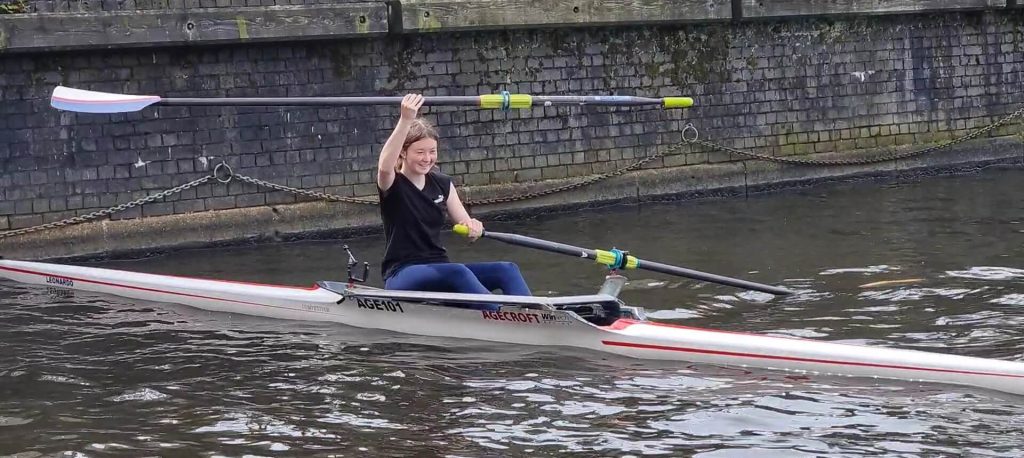
Lauren also coaches for Warrington Youth Rowing, a successful schools programme that is opening a Greater Manchester chapter at Agecroft this autumn.
“Some of our older juniors are really keen to help coach,” she says. “A lot of them get volunteering time from school, which helps with their rowing but also their life skills.”
“Rather than having J17/18s rowing as juniors, because we have such a well-established senior squad, they row with them and it sets them up for university life – all the highs and lows.”
If they aren’t defining success in terms of medals, how do this coaching duo measure the merits of their programme?
“For me, it’s not about winning the races: it’s seeing the juniors stick around, happy and enjoying it”
“For me, it’s the [numbers] that stick around,” says Lauren. “When I was a junior we went through
phases of being well-organised to losing all the juniors because it wasn’t enjoyable.
“It’s not about winning the races. It’s seeing the juniors stick around, happy and enjoying it.
“It was really nice to see Bella win [silver at JIRR] but also to see that she will sit in a boat with complete beginners and be absolutely fine to do that.”
Wayne adds: “We’re there, we’re reliable, the sessions are consistent and you’re always greeted with a smile. And sometimes a bacon sandwich.”
The arrival of Greater Manchester Youth Rowing has helped with some of the challenges of a growing programme. There are two new coxed quads available for use by Agecroft youngsters at weekends.
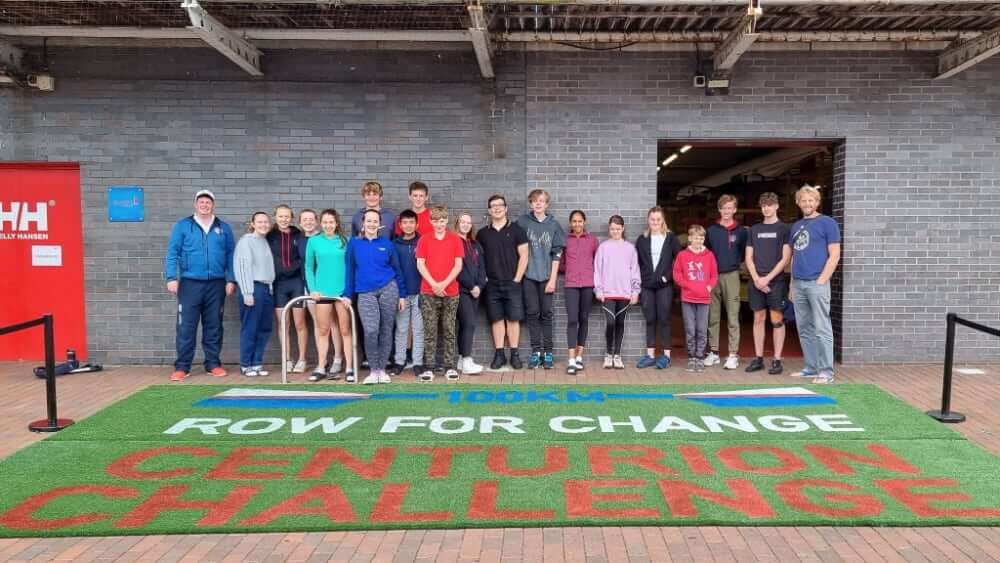
However the club sees a challenge, as do many others, in attracting and retaining volunteer coaches, especially given the increase in the availability of paid coaching work around the country. In response, the club organises regular volunteer days for parents to show them what might be involved in helping out.
“They know how expensive these boats are so they don’t want to go anywhere near them!” says Wayne.
“We’re just giving them to confidence to carry a pair of blades, help someone onto the water or walk the bank with a throw line.
“The problem is that once you get someone hooked then they want to start rowing as well!”


